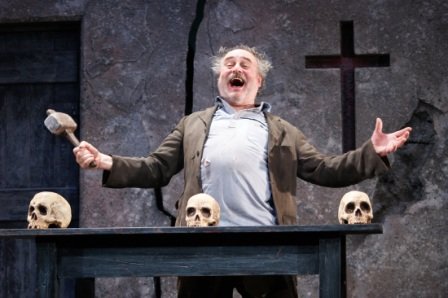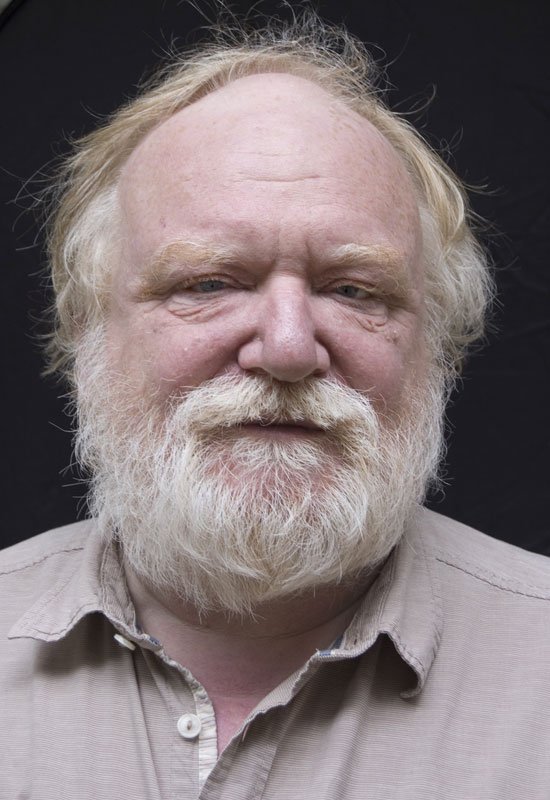Introducing| Hidden Gems on the Leaving Cert Syllabus
When my sister asked me to help her with her Leaving Cert. English revision (not so much asked as relented to my pleas) I realised that enough time has passed since I sat mine to appreciate the literature offered on the syllabus. This year’s syllabus, as mine did three years ago, lists obvious classics such as The Great Gatsby, King Lear and Wuthering Heights, but this year the selection of Irish writing in particular was fresh and genuinely engaging, rather than contrived or stuck on as the ‘token’ couple of Irish writers. Here are some of the works on the 2016 syllabus that will reignite your passion for literature and hopefully soften and harsh memories of studying English at school.
A Skull in Connemara by Martin McDonagh

Considered by some to be the ‘Tarantino of Irish theatre,’ many of McDonagh’s plays tend to be rich in dialogue with moments of intense violence. His plays often deal with the idea of identity; in the case of A Skull in Connemara and The Beauty Queen of Leenane, the preceding play in McDonagh’s Leenane Trilogy, the focus is more specifically on the ideas of Irish cultural and national identity. Mary Rafferty is a woman in her seventies that appears to be a devout Catholic, while Mairtin Hanlon is young, brash and vulgar. Mick Dowd is the graveyard caretaker that catalyses the action of the play as Mairtin helps Mick with his annual task of digging up the bones of the dead and disposing of them to make room for the fresh corpses. Tension builds throughout the play through the hostility that undercuts the dialogue as well as the increasing mystery surrounding the death of Mick’s wife.
The veneer of the Catholic, rural Irish image is shattered by the end of the play when Mary and Mairtin’s moral compass is shown to be shaky – Mary and Mairtin seem indifferent to whether or not Mick actually did kill his wife, yet both believe that it is wrong to curse. The play undoes the idyllic image of rural Ireland by exaggerating the stereotypes of the Irish drunk fool and the old, traditional biddy. As the conversations become more and more depraved there is also continual mention and ridicule of Americans and American cop shows. Ireland’s rural identity has become unstable, yet the people are hostile to change or difference. McDonagh’s comedy is inky black and satirical to the point of surreal, thoroughly making fun of Irish stereotypes.
The play’s laugh-out-loud funny and nonsensical humour is almost comparable to the brand of Irish fiction and comedy of Father Ted. In college, one of my lecturers made the argument that the play was racist, particularly since MacDonagh was born in England to Irish parents rather than being born-and-raised Irish (but of course we can claim him as Irish). Like Father Ted though it’s all too silly to be taken seriously. The play is definitely worth reading if you enjoy discussions about drowning in bodily excrement or boiling hamsters alive: “It’s not all it’s cracked up to be. You stick him in alive and he comes out dead. The feck hardly squeals… I mean, the fella hardly squeals.”
‘The Dead’ by James Joyce

The syllabus actually specifies Irish playwright Frank McGuiness’ dramatic adaptation of Joyce’s short story, but sadly I was unable to get my hands on it. Joyce’s story however is still regarded as one of the greatest examples of the form ever written. Like many of the stories in his Dubliners collection, as well as his novels Ulysses and A Portrait of the Artist as a Young Man, Joyce’s story reveals the failure of language in communicating genuine emotion. The story ironically aims to show that a preoccupation with art and writing diminishes the ability to express or even recognise love. ‘The Dead’ attempts to represent the impossible task of articulating love through clichéd language that can only show a portrait of idealised love, not reality.
Gabriel is preparing for the speech he is to give at his aunt’s dinner party, worried that the references to Robert Browning in his speech will alienate his audience. One of the party guests plays a tune on the piano and Gretta stands listening to it, and Gabriel is filled with a surge of joy when he catches a glimpse of her with a sad yet beautiful expression on her face. As the story progresses and the dinner party wears on we see that it is in fact Gabriel that is alienated from words and their meanings as he struggles to express this joy to Gretta. He becomes increasingly overcome with bodily sensations and urges and less and less able to communicate his feelings and desires to her. When she breaks down in tears revealing that the rune she was listening to on the piano reminded her of her first love, Gabriel realises he has never really felt a love that intense. The romantic and the idealised is interrupted by the physical and the bodily, showing a tension between love that is written about and real life. The story is subtle and carefully crafted and I feel confident in assuming that Frank McGuinness’ adaptation is faithful to the nuance of Joyce’s masterwork.
Paul Durcan

Paul Durcan is the contemporary Irish poet that every Leaving Certificate student in the country was praying to come up on the paper. His work first appeared on the syllabus last year and he has been a favourite with students due to the accessibility of his work. Whereas many students struggle with Yeats’ idealism and dreamy sense of nationalism, Durcan’s poetry taps into relatable emotions and ideas. His poem ‘Nessa’ for example, to his wife, is simply wrought yet beautifully poignant. He describes the sensation of falling in love with her as falling into water, “And that was a whirlpool, that was a whirlpool/And I very nearly drowned.” He met her in a Shangri-La hotel, but it’s clear that she reminds him of home: “Would you care to swim? she said to me,/And I hopped into the Irish Sea,” but the feeling comes with a lot of uneasiness. His relationship with Nessa is one of intense passion that is close to consuming him, which Durcan succinctly expresses with the repeated lines “Oh you are a whirlpool, you are a whirlpool,/ And I am very nearly drowned.”
His work treads gracefully on the line between light and dark, between humour and solemnity. In ‘Wife Who Smashed Television Gets Jail’ there is instant humour as the speaker tells the judge how engrossed he and his children were in the television: “…I didn’t turn it off, so instead she turned it off –/I remember the moment exactly because Kojak […] /And then she took off her boots and smashed in the television;/I had to bring the kids round to my mother’s place;/We got there just before the finish of Kojak; /(My mother has a fondness for Kojak, my Lord).” The poem delicately moves from humour to tragic irony towards the end of the poem, saying “Justice O’Brádaigh said wives who preferred bar-billiards to family television/Were a threat to the family which was the basic unit of society/ As indeed the television itself could be said to be a basic unit of the family.”
Featured Image Source: studyclix.ie

